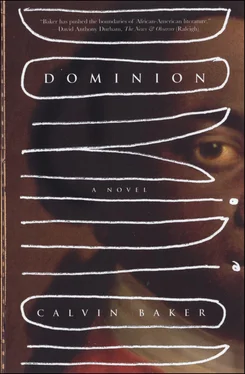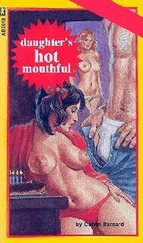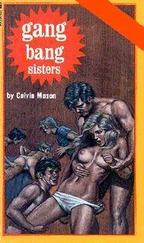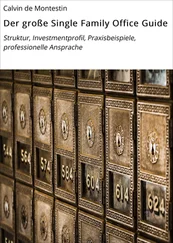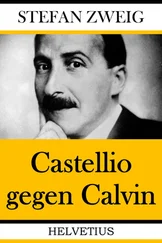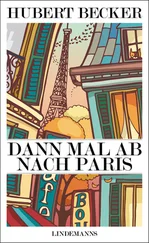Purchase, though, did not seem to care about the coins and continued to put more into the stack in the center of the table, until the Englishman also withdrew and there was only Purchase and the woman left in the game.
By now the men who had sat there earlier were finished with their business and took seats at the bar to watch the card game unfold. “She’ll have his very skin before long,” one of the men said, looking at the cards on the table. At this Purchase cut his eyes menacingly and pulled a pistol from his belt. “Not before I’ve had yours if you keep flapping,” he answered, leaving the gun on the table pointed at the other man. The man who had been threatened was quiet after that, as much from fear of Purchase as the fact that the gun was made of unmixed gold. “It will put a golden bullet in you too,” Purchase said, looking steadily at his cards.
Magnus could tell very little about who had the better hand from the cards that showed on the table, but when the next one was revealed, he saw Purchase’s face slump and the woman begin to glitter. “It’s all right, Sugarloaf,” she said to him. “If you lose I’ll let you stay the night with me in my room.” The Englishman who had been her partner was not pleased to hear her talk so saucily, but he held his tongue, waiting for the last card to be turned over.
Before it could be revealed, though, there was a ruckus outside that spilled immediately through the door of the tavern. Three highwaymen stood back-to-back-to-back, holding guns, and began moving through the room, taking purses from the patrons at the bar. When one of them saw the money stacked in front of the cards, and the golden pistol, he broke away from the others and went to take the bounty from the gaming table. As he held his hand over the pile of money, though, a shot rang out and he fell where he had stood.
Contrary to what Purchase had claimed, the bullet from the gun was made of lead. He and the woman then jumped from the table and rushed toward the door, as the other robbers fired randomly into the bar. In the melee Magnus searched for a way out, before finally discovering a back door and sneaking out into the hushed night air. The scene he left behind was of bloody carnage, and when he found his horse he whipped it into a frenzied gallop, not caring which direction he was going as long as it was away from that place, before he was shot or the authorities descended upon them.
The horse half obeyed and half did as it pleased, until Purchase rode up from the other direction and took the reins, as Magnus drooped in the saddle full of liquor. The jostling of the ride was awful on his head, and when they reached the road before Stonehouses, he climbed down and began walking the horse to the stable, unable to ride any longer.
“Who would have won?” Magnus asked, as Purchase helped him into the house.
“Hard to say,” Purchase replied. “But for the offer she made I would have gladly lost.”
“Not me,” Magnus told him. “Not for all the money that was piled on that table.”
“It wasn’t so much,” Purchase said.
“More than I’ve seen.”
“I would have given even more for her offer.”
“What about her white man?”
“I suppose that’s who would have lost.”
“Not with you paying through the nose for what you could have upstairs for a lot less.”
“I’ll have it later tonight for nothing,” he claimed.
“How so?”
“I left her where I can meet up with her.”
“You’ll stay in gunfights at this rate of living.”
“And you for stealing horses.”
“What horse did I ever steal?”
“The one you rode home on.”
“It was a mistake. I’ll return it first thing in the morning,” Magnus said, falling quiet. But he thought the woman from the bar reminded him of the wicked one in his dream. “I don’t think drinking is much for me.”
“Do you need help getting inside?”
“I’ll manage.”
Purchase watched as Magnus made his way inside, before turning and riding back to the room behind his workshop, where he had left the woman.
When he arrived he found she had gone without leaving any sign. He returned home alone not very long afterward, and in the days that followed he asked everyone what they knew of her. Try as he might, though, he could only gather bits and pieces of stories, each new one contradicting the last, so that all he knew for certain was that she had not waited and was gone from him.
He is a tiller of the soil with little interest in the affairs of other people, save the family that has taken him in, and no real bonds but to the air and the land that gives them sustenance. After his initial buffeting by the newness of the place around him he settles back into himself, keeping his own company and never complaining, but only occasionally imagining to himself other ways certain things might be done. At Sorel’s Hundred he engaged in the same idle wondering until it became a permanent ache and then a murderous craving he would have acted on, but for his mother. For her sake he held his hand patiently. After her he can be patient no longer.
* * *
At Stonehouses the days were more flexible and he worked as he saw fit, discounting, of course, the things Merian himself was rigid about and would broker no dissent or discussion over. He allowed Magnus a free hand with everything else, letting him, for example, experiment with the crops, if he pleased, but not on too large a scale, and even with his time — so long as all the work was done and no complaints from the men. Where he was rigid, though, he was hard as any overseer on the coast.
That second week he was on the land, after wages were paid out, Merian saw Magnus turn his money over to Purchase to cover his gaming loss from the week before.
“I told you it was for fun and my invitation,” Purchase said, refusing the money.
“You go ahead and take it,” Merian said sharply, startling the two of them, who had not seen him approach.
Under Merian’s watchful eye, Magnus paid from his wages the same number and kind of coins Purchase had given to him at the roadhouse.
“Now, how much do you have left out of what you just gave Purchase?” Merian asked, after the debt had been paid.
Magnus looked at the specie in his hand for a long time before answering. “Five shillings.”
“If I told you I was going to give you another five shillings, how would that figure up?”
Magnus thought hard, carefully imagining the coins in his palm before answering. “Ten shillings.”
“Now tell me the number of pence in that.”
Magnus was silent.
“What about parts of a pound?” Merian continued, as Magnus began to grow hot with embarrassment.
“You don’t have to make a fool of me,” he said finally, glaring at Merian.
“I’m not trying to embarrass you,” Merian answered. “I’m trying to help you get on better than you got on before. For that you need to know proper ciphering. A man can always trust somebody else to read something out for him, without too much worry over it, because what’s important here ain’t written down, unless you count the Bible — and there’s whole legions of preachers tripping over each other to do that for you — but if a man can’t cipher he can’t trust nobody to make up the balance or tell him what it is. Purchase is your brother, so he won’t cheat you out of your shillings. Then again he might. Do you trust him not to?”
Magnus thought about it, before answering, “I don’t think he would.”
“Well,” Merian said, “I’ve known him a bit longer than you, and he is dear as life to me, but I’ll count my own silver.”
Every day after that, when he left the fields, Magnus had to sit with either Merian or Sanne and practice arithmetic for hours on end, until he went to sleep at night with his brain aching from pondering figures and symbols. Still, he stuck with it every night that entire season and all the way into the next, until eventually he could count as well as a Dutchman.
Читать дальше
